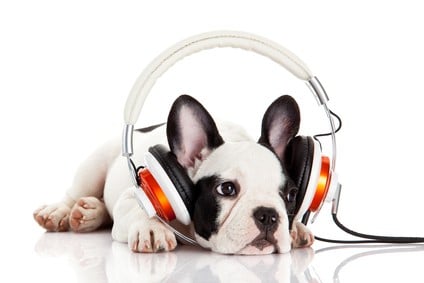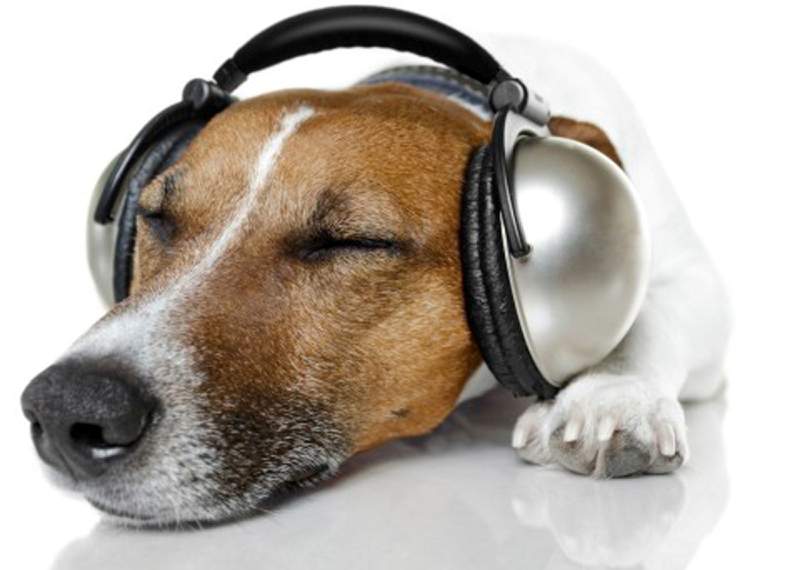In today’s fast-paced world, stress is an everyday occurrence. Piling bills, nagging bosses, and traffic snarl-ups all play a big role in jacking up our stress levels. Recently, however, researchers have found that listening to classic music can go a long way in lowering our blood pressure, and consequently, our stress levels. Classical music has also been proven to combat depression, lower pain, increase our tolerance to unpleasant manipulations, and promote healthy sleep cycles.
Besides humans, classical music has been shown to have a calming effect on a wide range of animal species. For instance, chicken tends to grow faster when they listen to classical music. Cows are also likely to produce more milk and readily enter milk parlors when classical music is being played. Carps exposed to classical music also tend to grow faster and produce better quality flesh.
What about dogs? Do dogs love classical music? And does it have any effect on them?
Short Answer:
Yes, classical music is an all-time favorite for most dogs. They find the melody and rhythm of classical music soothing. So, listening to classical music can boost your dog’s mood, reduce his anxiety levels, lower his blood pressure, and control his response to stress.
Long Answer:

In a 2002 study done by Deborah Wells, a psychologist at Queens University in Belfast, dogs from an animal shelter were exposed to different genres of music. As each type of music played, the researchers documented the behaviors of the participating dogs. They also threw in some quiet time and human conversations to be certain that the dogs were responding to the musical aspects of the sounds. They found that dogs not only respond to music but also have their favorite types of music. For instance, the researchers found out that dogs didn’t like heavy metal songs. They became agitated and started barking when heavy metal tracks were played. Human conversation and pop music didn’t have significant effects on the dogs. On the other hand, classical music seemed to have calming effects on the dogs. When classical music was played, the dogs spent more time lying down and barked less.
Colorado State University College of Veterinary Medicine’s Dr. Lori Kogan also had similar results in her 2012 study. He observed 117 kenneled dogs over a period of four months to establish how they responded to different genres of music, including classical, heavy metal, and another type of classical music that was specifically composed to soothe dogs. She found that classical music relaxed the dogs more and caused them to sleep better while heavy metal increased their agitation and stress levels.
And in a 2017 study conducted by the University of Glasgow for the Scottish SPCA, classical music was found to have a calming effect on dogs in a shelter home in Dumbarton. During the study, the stress levels of dogs decreased significantly after classical music was played in their kennels. However, the effects lasted for a short period as the dogs became bored after a few days. The researchers suggested the results were short-lived because dogs prefer to listen to a variety of music. Another interesting finding from this study that’s worth mentioning was that male dogs responded better to music than their female counterparts—they barked less when classical music was being played.
The Verdict: What Can We Learn From These Studies?
From these three studies, one thing is certain: If you play some Beethoven or Mozart in your house, your dog is going to enjoy it! On a serious note, we can deduce that classical music is not only a favorite for dogs but could also be used as an important tool to regulate their moods and enrich their environments.
Classical music and other relaxing sounds are believed to affect various psychological processes in a dog’s autonomic system. In particular, the auditory cortex, parts of the limbic system, and multiple parts of the brain are believed to be involved.
Tips for Ensuring That Your Dog Enjoys Classical Music

Just like humans, your dog cares about other aspects of the music that you play him—beyond the genre. To ensure that your pup enjoys his favorite Bach track, keep the following tips in mind:
- Play the music in a relatively low volume. Dog’s ears are more sensitive compared to humans’, so they cannot tolerate very loud music.
- Pay attention to your pup’s reaction whenever you play any song. If you notice abnormal behaviors like your dog shaking, panting, or whimpering when you play a certain classical track, it simply implies that it is making him anxious. Consider changing it or turning it off.
- Noisy environments are stressful to most dogs. To help your pup enjoy his classical tunes more, consider reducing environmental noise as much as possible. If possible, allow your pup to control his exposure to music. In other words, train your dog to turn the music on and off so that he can decide when he wants to listen to music.
- Musical appreciation in dogs is also believed to be breed-related. A giant breed like Great Dane and a toy breed like Bichon Frise may have vastly different hearing ranges, which can affect how they actually hear or perceive music. So, know your dog’s personality before playing him any type of classical music.
Best Classical Music to Buy for your Dog
Looking for the best classical tracks to calm your dog? We highly recommend the following:
Final Thoughts: Do Dogs Like Classical Music?
Yes, they absolutely do! And if you stop playing that Black Sabbath track for some time and try a little bit of Mozart, your pup is going to thank you for it! However, like humans, dogs have different tastes. So, what works for your neighbor’s dog may not work for yours. The only way to tell whether your dog enjoys classical music or any other genre of music is through trial and error. Pay attention to how your dog reacts when you play a given song and take it from there.
Besides, a dog is believed to be a reflection of its owner. So, you don’t need to change your musical taste to cater to your dog. If a certain music genre gets you hyped, your pup will take his cues from you and react in a similar way. Just remember to throw in some classical tunes once in a while, especially if your dog is feeling anxious, suffering separation anxiety, or wants to sleep.
Related Post: 10 Best iPad Games for Dogs
As an Amazon Associate, we may receive a small commission from qualifying purchases but at no extra cost to you. Learn more. Amazon and the Amazon logo are trademarks of Amazon.com, Inc, or its affiliates.

